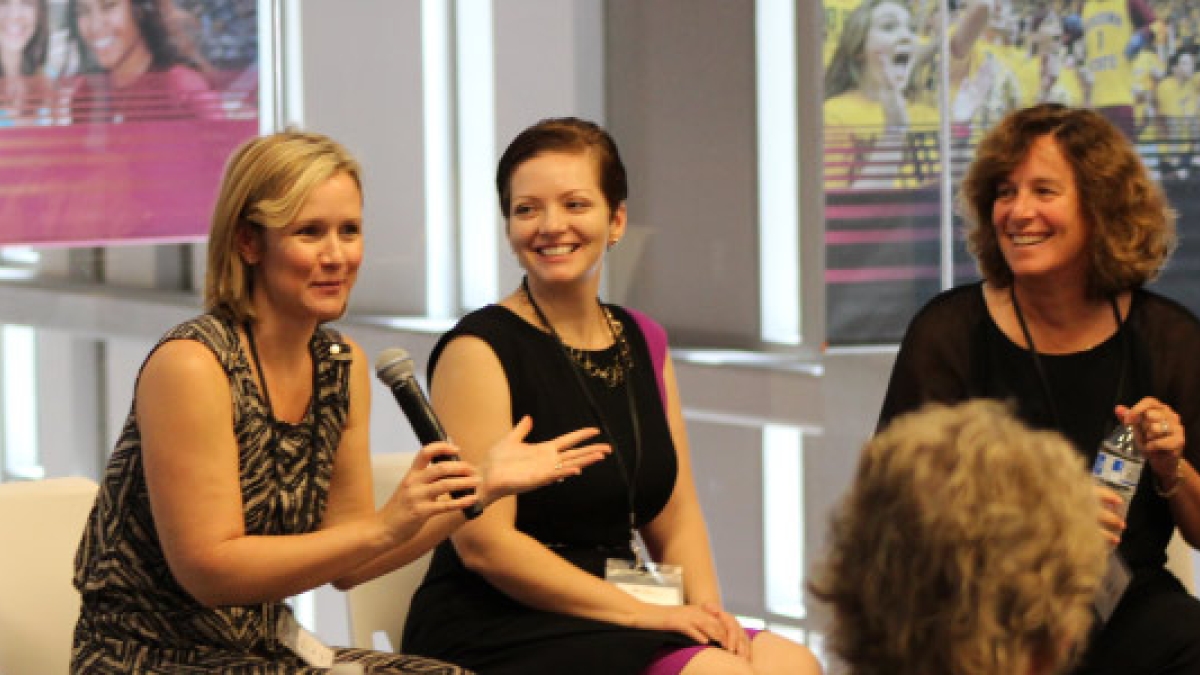ASU group looks into women's representation in politics

ASU professors from left to right: Miki Kittilson, Magda Hinojosa and Kim Fridkin
Over the years Arizona State University's School of Politics and Global Studies has developed working groups that emphases on advancing research in key areas. The Women and Politics Working Group has been active since 2013 and consist of scholars whose research focuses on women’s role in politics.
Three members of the Women and Politics Working Group, Magda Hinojosa, Miki Kittilson and Kim Fridkin, received a USAID award in 2014 to study symbolic representation through a natural experiment in Uruguay. Their recently published paper is part of USAID’s Research and Innovation Grants Working Paper Series and is titled "Does Women’s Political Presence Matter? Examining the Effects of Descriptive Representation on Symbolic Representation in Uruguay."
Uruguay first applied a gender quota law in the 2014 elections. The researchers recognized that this presented a unique opportunity to examine how the increase in women’s parliamentary representation would affect Uruguayan citizens.
In order to figure out whether women’s representation actually mattered, the group polled Uruguay citizens on their interest, knowledge and participation in politics before and after the gender quota was implemented. Hinojosa also traveled to Uruguay in the summer of 2015 and 2016 to interview with female parliamentarians.
“The take-home point from our work in Uruguay is that women’s representation in politics matters,” shared Hinojosa.
The results of this research have been shared at USAID and ASU conferences.
“The implications of our work extend far beyond Uruguay,” Hinojosa said. “There’s a documented gender gap in political knowledge, interest, and participation across the globe. What we find is that this gender gap shrinks in response to changes in women’s legislative representation; as we say in our report: this gender gap is not insurmountable.”
Through their research the group believes that women would be more interested in politics if they see someone they could related to (i.e. women) representing them. A more gender equal political arena would be key in increasing the number of engaged citizens.
“Our faculty strength in understanding the role women play in the political arena makes a critical contribution to the development agenda of USAID and other actors committed to advancing development around the world,” shared Cameron Thies, director of the School of Politics and Global Studies.
“Countries across the world are debating the merits of gender quotas and other affirmative action measures aimed at increasing women’s representation in political office,” Hinojosa said. “Our work is an important contribution to these debates.”
More Law, journalism and politics

A new twist on fantasy sports brought on by ASU ties
A new fantasy sports gaming app is taking traditional fantasy sports and mixing them with a strategic, territory-based twist.…

'Politics Beyond the Aisle' series to explore the stories of public officials
In an effort to build a stronger connection between students and political and civic leaders, Arizona State University’s School…

ASU committed to advancing free speech
A core pillar of democracy and our concept as a nation has always been freedom — that includes freedom of speech. But what does…

